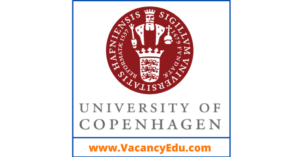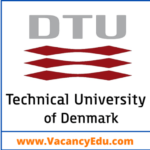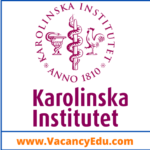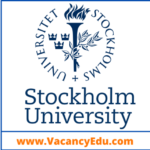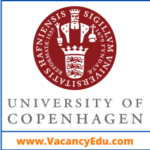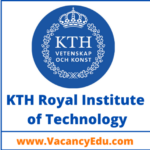University of Copenhagen, Denmark invites online Application for number of Fully Funded PhD Degree at various Departments. We are providing a list of Fully Funded PhD Programs available at University of Copenhagen, Denmark.
Eligible candidate may Apply as soon as possible.
(01) PhD Degree – Fully Funded
PhD position summary/title: PhD positions in Theoretical Computer Science and/or Combinatorial Optimization
The PhD students will be working in the Mathematical Insights into Algorithms for Optimization (MIAO) group headed by Jakob Nordström (http://www.jakobnordstrom.se), which is active at both the University of Copenhagen and Lund University on either side of the Øresund Bridge.
Deadline : 29-06-2022
(02) PhD Degree – Fully Funded
PhD position summary/title: PhD fellowship/Postdoc/Assistant Professor within the Complexity and Big Data Group
We offer a creative and stimulating working environment in an international and interdisciplinary research group. Health is a complex phenomenon, and we study the social, environmental, and biological factors determining health and disease. We also aim to elucidate the underlying biological and social mechanisms that might explain these effects. To embrace complexity in health, we actively explore new sources (e.g. smartphones) of ‘big data’, incorporate complexity theory and system methods, leverage insights across disciplines, and explore the opportunities in citizen science aimed at a direct societal engagement and impact.
Deadline : 19-06-2022
View All Fully Funded PhD Positions Click Here
(03) PhD Degree – Fully Funded
PhD position summary/title: PhD fellowship in ”Fibrosis and intracellular calcium handling in the pathophysiology of heart failure with preserved ejection fraction” at the Department of Biomedical Sciences, University of Copenhagen
Heart failure is a critical, clinical diagnosis characterized by shortness of breath at rest, fatigue, weakness and edema. Two categories of heart failure exists: Heart failure with reduced or with preserved ejection fraction (HFrEF and HFpEF, respectively). A weakened heart muscle causes HFrEF, whereas HFpEF hearts are too stiff to be filled sufficiently during diastole. Historically, focus has been on HFrEF, but HFpEF represents an unmet medical need due to the unknown underlying causes, and the lack of efficient, clinical treatment options.
Deadline : 15-06-2022
(04) PhD Degree – Fully Funded
PhD position summary/title: PhD fellowship in applied statistics in monitoring pesticide effects
The main aim of environmental risk assessment is to assign magnitudes and probabilities to adverse effects of human impact. A key parameter used in chemical risk assessment is the benchmark dose, identifying the dose associated with a predefined deviation from non-treated controls in the testsystem investigated. The benchmark dose methodology relies on non-linear dose-response models. The methodology is well-established for univariate data, such as a growth or mortility measured at a single point in time, but less so for more complex data structures such hierarchical data based on repeated experiments or time series, which have the advantage of closer resembling reality and accordingly provide more valuable input for risk assessments. In addition, as toxicity is a process in time and exposure concentrations often vary in time (chemicals degrade in the environment, and/or are added repeatedly), statistical methods to describe effect development in time as a function of exposure is becoming increasingly important tools for chemical risk assessment.
Deadline : 6 June 2022
Polite Follow-Up Email to Professor : When and How You should Write
(05) PhD Degree – Fully Funded
PhD position summary/title: PhD fellowship in Drug Delivery: Overcoming the skin barrier using a multiple prodrugs approach
Topical application is a minimally invasive, attractive route of drug administration. Unfortunately, the skin constitutes a formidable barrier to drug delivery, limiting the number of substances that can be delivered. Via improved understanding of the interplay between the physical chemical forces governing membrane transport, we aim to expand the number of drugs that can be delivered effectively to the skin. We take a physical chemical approach to improving skin transport exploring a novel multiple prodrug approach. We will focus on the thermodynamic activity of the drug, prodrugs (chemical derivatives of diclofenac), and the vehicles applied, which is the driving force for transport. Basic physical chemistry dictates that the transport of a molecule is unaffected by the presence of other molecules. This opens for simultaneous administration of multiple prodrugs for increasing the “operational” thermodynamic activity and, hence, driving force of drug transport. However, high prodrug concentrations will affect solvent thermodynamic activity. Hence, the concept provides a tool for separating molecular, solvent, and membrane effects on transport. The prodrug approach will be explored via transport studies over artificial membranes and human skin pursuing conditions allowing delineation of solvent, membrane interactions, and supersaturation effects. Incorporation of multiple molecules/prodrugs in a delivery vehicle for application to skin represents a new approach, which may be exploited, e.g., in treatment of pain and inflammation or actinic keratosis.
Deadline : 01-06-2022
(06) PhD Degree – Fully Funded
PhD position summary/title: PhD position in stem cell biology and neural development at the NNF Center for Stem Cell Medicine
The Human Neural Development research team is located at the The Novo Nordisk Foundation Center for Stem Cell Medicine (reNEW) at the Faculty of Health and Medical Sciences of University of Copenhagen. Our group works to develop stem cell transplantation therapies for brain disorders such as Parkinson’s Disease, dementia and narcolepsy by producing high-purity cultures of subtype-specific human neural cells in the lab and testing these in animal models of disease. We further apply advanced stem cell technologies to study normally inaccessible stages of human brain development as well as to produce models of human brain diseases in the dish (i.e. Parkinson’s Disease, Schizophrenia and hypothalamic disorders).
Deadline : 01-06-2022
Click here to know “How to Write an Effective Cover Letter”
(07) PhD Degree – Fully Funded
PhD position summary/title: PhD scholarship in the SAMSKAB research project at the Department of Anthropology, University of Copenhagen (UCPH)
The SAMSKAB research project challenges the notion that the green transition takes place primarily through individual behavior and technological change by pointing out that it can take place just as much as a fundamental social change involving neighboring communities. The starting point for SAMSKAB is that a significant green transition does not just require political regulation and technological solutions, but also civil action and behavioral changes. The hypothesis in SAMSKAB is that cooperation and collective action for common goals in green neighborhood communities reinforces environmental behavior and promotes both an environmental and a social agenda. The project studies how green neighboring communities are established, either from the start or through a transformation of existing gray housing associations, and it measures the social and environmental impact of collective action. The PhD project will focus on the establishment of new green communities in social housing (Tingbjerg is a possibility, but other cases can also be chosen), and on the social and environmental impact of these green communities.
Deadline : 31-05-2022
(08) PhD Degree – Fully Funded
PhD position summary/title: PhD fellowship in Structural Biology at Novo Nordisk Foundation Center for Protein Research
CRISPR-Cas is an adaptive immune system that has been adapted to be used as a genome editing tool. In this project, the PhD candidate will carry out structural and biochemical characterization of CRISPR-Cas multiprotein complexes. You will express and purify the proteins as well as prepare samples for structural determination by Cryo-Electron Microscopy. Based on bioinformatical and structural data, relevant biochemical assays will be performed to uncover catalytic functions.
Deadline : 24-05-2022
(09) PhD Degree – Fully Funded
PhD position summary/title: PhD fellowship in Molecular pharmacology and Nutritional Immunology at the Department of Biomedical Sciences
The PhD study will run as a collaboration between the Molecular pharmacology Lab and the Nutritional Immunology Lab, both situated at Department of Biomedical Sciences, UCPH. The Molecular pharmacology part will be executed in the group of Assoc. Professor Gertrud M. Hjortø, that study chemokine induced signalling and chemotaxis of immune cells and the allosteric action of gut expressed host defence peptides (HDPs) on chemokine receptors. The Nutritional Immunology part will be executed in the group of Assist. Professor Benjamin A. H. Jensen, that study how dietary factors affect organismal, in particular intestinal, immunology at the onset, prevention, and treatment of chronic inflammatory diseases.
Deadline : 24-05-2022
(10) PhD Degree – Fully Funded
PhD position summary/title: PhD fellowship in Research Culture at Medical Museion (Department of Public Health)
Companies, countries and foundations pour vast resources into our knowledge-based world by supporting research. This research is also increasingly international and interdisciplinary, presenting new challenges for the organisation and culture of science. There is a long tradition of studying how research environments function, but the relationship between their internal cultures, scientific outputs, and researcher wellbeing remains under-developed. This PhD project will explore a corner of this enterprise by examining aspects of how research in cross-disciplinary centres is conducted, alongside the experiences of its participants.
Deadline : 22-05-2022
Connect with Us for Latest Job updates
(11) PhD Degree – Fully Funded
PhD position summary/title: PhD fellowship in Computational Phylogenetics at the GLOBE Institute
Organismal morphology is studied in biology to decode evolutionary relationships among species and to test evolutionary hypotheses in the context of phylogenies. The Stochastic Morphometry project aims to develop statistical models of evolutionary morphological change, thereby making phylogenetic inference tools applicable for the study of shape change. The aim is to develop an entirely new framework for phylogenetic analyses that treat the full 2D or 3D shape, such as a 2D photograph of a butterfly wing or a 3D model of a mammalian cranium, as an evolving object along the branches of a phylogeny. Essentially, we will extend Felsenstein’s classical Brownian motion model of character evolution to use full, infinitely dimensional shapes and stochastic shape processes.
Deadline : 22-05-2022
(12) PhD Degree – Fully Funded
PhD position summary/title: PhD fellowship in Compiler Technology for Distributed AI
The project will build on the existent infrastructure of the Futhark language and optimizing compiler, which is developed locally at DIKU and is thought as a research vehicle for studying aggressive analysis (static, dynamic, and hybrid), aimed primarily at optimizing highly-parallel applications. The underlying philosophy is rooted in language-compiler co-design, namely that the language exposes higher-order constructs, whose richer semantics simplifies compiler analysis, and vice-versa, advanced analysis allows stronger properties to be enforced at language level and exploited by later compiler analyses. For example, Futhark recently supports both forward and reverse-mode automatic differentiation (AD) by second-order language primitives, which are implemented as a non-trivial code transformation, whose derivation, at its turn, takes full advantage of the higher-order semantics of the parallel operators.
Deadline : 22-05-2022
List of Top 25 Free Statistical Analysis Software
(13) PhD Degree – Fully Funded
PhD position summary/title: PhD fellowship in Section for Pathobiological Sciences
The vast majority of stem cell-derived cardiac tissue models and organoids are based on human cell models. As the access to native human cardiac tissue is restricted, validation of hiPSC-CM is challenged and the predictive value of the hiPSC-CM based assays questionable. Pigs and dogs have served as the key large-animal test models for preclinical cardiac efficacy and toxicity for decades. We thus have access to a rich and varied data set that includes both safe and un-safe compounds. Matching whole-animal and ex vivo data against iPSC-based in vitro assays derived from the same species provides an appealing route toward validating organoid assays in general and thereby reduce and replace experimental animals.
Deadline : 22-05-2022
(14) PhD Degree – Fully Funded
PhD position summary/title: PhD fellowships in strong field gravity
Gravitational-wave astronomy has revolutionized science. In this project, we aim to explore the influence of gravitational waves in the dynamics of several systems. This includes gravitational waves emitted by extreme-mass ratio systems, waves emitted by scalar structures, and waves emitted by exotic compact objects. The project aims to test General Relativity and the black hole paradigm to unprecedented levels.
Deadline : 20-05-2022
(15) PhD Degree – Fully Funded
PhD position summary/title: 3 PhD fellowships in applied Machine Learning, Information Retrieval and Natural Language Processing
The fellows will join the Information Retrieval Lab at the Machine Learning Section at DIKU. The Machine Learning section is among the leading research environments in Artificial Intelligence and Web & Information Retrieval in Europe (in the top 5 for 2020, according to csrankings.org), with a strong presence at top-tier conferences, continuous collaboration in international & national research networks, and solid synergies with big tech, small tech, and industry. The Machine Learning section consists of a vibrant selection of approximately 65 talented researchers (40 of whom are PhD and postdoctoral fellows) from around the world with a diverse set of backgrounds and a common incessant scientific curiosity and openness to innovation. Moreover, DIKU is internationally leading within Natural Language Processing (ranked 2nd in Europe for the last 5 years, according to CSRankings). The NLP section has a broad portfolio of research, including investigating methods to automatically process, understand, and generate text, with applications including automatic fact-checking, machine translation, question answering, and visually grounded NLP.
Deadline : 19-05-2022
(16) PhD Degree – Fully Funded
PhD position summary/title: PhD fellowship in Organic Chemistry
The project concerns the synthesis of biomimetic receptors for carbohydrates using a combination of molecular design and dynamic combinatorial chemistry. While there will be a strong emphasis of synthetic organic chemistry, it is expected that tools from the physical organic chemistry toolbox will be widely used, including a range of spectroscopic methods, ITC and crystallography. A secondary goal of the project is to prepare an artificial enzyme that rely of the biomimetic molecular recognition of carbohydrates.
Deadline : 18-05-2022
Top 14 Best Citation Manager 2022
(17) PhD Degree – Fully Funded
PhD position summary/title: PhD fellowship in Drug Delivery of Biopharmaceuticals: Delivery system design for in vivo delivery of peptide drugs
The demand for peptide and protein therapeutics that can be used without injection is increasing. However, due to the structural properties of such biopharmaceuticals, it is extremely challenging to design drug delivery systems suitable for efficient delivery of therapeutic doses of, e.g., peptides after oral administration. Despite recent progress in the field of oral peptide delivery, there is still an unmet need to improve the translation from findings obtained in vitro to in vivo investigations.
This project will address the translation of promising findings from exploratory preclinical experiments to in vivo results. The project aims to design and critically evaluate drug delivery systems/dosage forms intended for oral peptide delivery and suitable for in vivo tests incorporating suitable functional excipients. The hypothesis is that by optimizing the combination of excipients with system design for specific peptide drugs, safe and efficient peptide delivery systems can be designed for future clinical tests. Design, characterization in vitro, as well as assessment in vivo will be done under the 3R-principles.
Deadline : 15-05-2022
About The University of Copenhagen, Denmark – Official Website
The University of Copenhagen is a public research university in Copenhagen, Denmark. Founded in 1479, the University of Copenhagen is the second-oldest university in Scandinavia, and ranks as one of the top universities in the Nordic countries and Europe.
Its establishment sanctioned by Pope Sixtus IV, the University of Copenhagen was founded by Christian I of Denmark as a Catholic teaching institution with a predominantly theological focus. In 1537, it was re-established by King Christian III as part of the Lutheran Reformation. Up until the 18th century, the university was primarily concerned with educating clergymen. Through various reforms in the 18th and 19th century, the University of Copenhagen was transformed into a modern, secular university, with science and the humanities replacing theology as the main subjects studied and taught.
The University of Copenhagen consists of six different faculties, with teaching taking place in its four distinct campuses, all situated in Copenhagen. The university operates 36 different departments and 122 separate research centres in Copenhagen, as well as a number of museums and botanical gardens in and outside the Danish capital. The University of Copenhagen also owns and operates multiple research stations around Denmark, with two additional ones located in Greenland. Additionally, The Faculty of Health and Medical Sciences and the public hospitals of the Capital and Zealand Region of Denmark constitute the conglomerate Copenhagen University Hospital.
A number of prominent scientific theories and schools of thought are namesakes of the University of Copenhagen. The famous Copenhagen Interpretation of quantum mechanics was conceived at the Niels Bohr Institute, which is part of the university. The Department of Political Science birthed the Copenhagen School of Security Studies, which is also named after the university. Others include the Copenhagen School of Theology and the Copenhagen School of Linguistics.
Disclaimer: We try to ensure that the information we post on VacancyEdu.com is accurate. However, despite our best efforts, some of the content may contain errors. You can trust us, but please conduct your own checks too.
Related Posts
- 15 PhD Degree-Fully Funded at Technical University of Denmark (DTU), Denmark
- 28 PhD Degree-Fully Funded at Chalmers University of Technology, Gothenburg, Sweden
- 15 PhD Degree-Fully Funded at Karolinska Institute, Sweden
- 11 PhD Degree-Fully Funded at Brunel University, London, England
- 04 PhD Degree-Fully Funded at Stockholm University, Sweden
- 23 PhD Degree-Fully Funded at Swansea University, Wales, United Kingdom
- 32 PhD Degree-Fully Funded at University of Copenhagen, Denmark
- 26 PhD Degree-Fully Funded at Lund University, Scania, Sweden
- 20 PhD Degree-Fully Funded at KTH Royal Institute of Technology, Stockholm, Sweden

